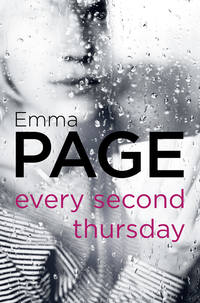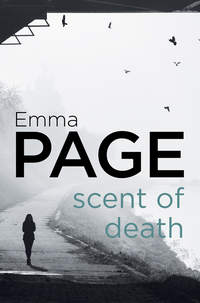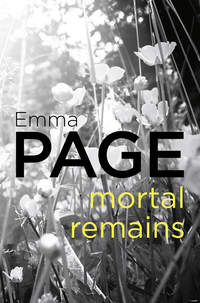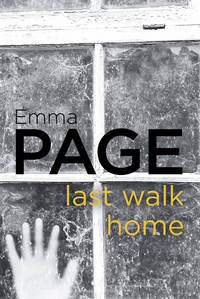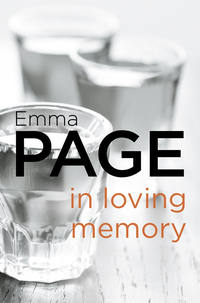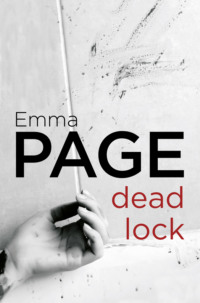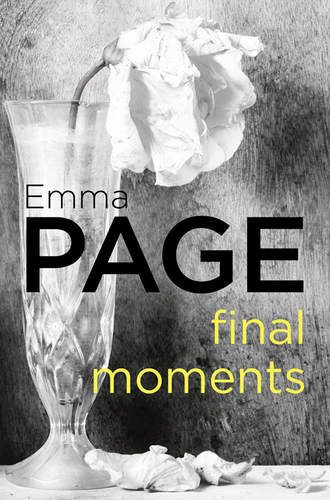
Полная версия
Final Moments


COPYRIGHT
Harper
An imprint of HarperCollinsPublishers
1 London Bridge Street
London SE1 9GF
www.harpercollins.co.uk
First published in Great Britain in 1987 by Collins Crime
Copyright © Emma Page 1987
Emma Page asserts the moral right to be identified as the author of this work
A catalogue copy of this book is available from the British Library.
This novel is entirely a work of fiction. The names, characters and incidents portrayed in it are the work of the author’s imagination. Any resemblance to actual persons, living or dead, events or localities is entirely coincidental.
All rights reserved under International and Pan-American Copyright Conventions. By payment of the required fees, you have been granted the nonexclusive, nontransferable right to access and read the text of this e-book on-screen. No part of this text may be reproduced, transmitted, downloaded, decompiled, reverse-engineered, or stored in or introduced into any information storage and retrieval system, in any form or by any means, whether electronic or mechanical, now known or hereinafter invented, without the express written permission of HarperCollins e-books.
HarperCollinsPublishers has made every reasonable effort to ensure that any picture content and written content in this ebook has been included or removed in accordance with the contractual and technological constraints in operation at the time of publication.
Source ISBN: 9780008175825
Ebook Edition © MARCH 2016 ISBN: 9780008175832
Version [2016-02-18]
DEDICATION
For the homesteaders
(and the tramps’ kitchen)
Long may they flourish
CONTENTS
Cover
Title Page
Copyright
Dedication
Chapter 1
Chapter 2
Chapter 3
Chapter 4
Chapter 5
Chapter 6
Chapter 7
Chapter 8
Chapter 9
Chapter 10
Chapter 11
Chapter 12
Chapter 13
Chapter 14
Chapter 15
Chapter 16
Chapter 17
Chapter 18
About the Author
By Emma Page
About the Publisher
CHAPTER 1
In Northwick Road, a humdrum shopping area in a workaday suburb of Cannonbridge, the shopkeepers were closing the tills and putting up the shutters. An overcast evening, unseasonably cool for the second week in May, the last stages of a wet, blustery spell that had interrupted a fine, early spring.
No. 47, Franklin’s, occupied premises somewhat larger than the chemist and draper on either side; it was housed in what had originally been two small shops, now knocked into one. Franklin’s dealt in the sale and rental, service and repair of television sets, radios, washing-machines, fridges and other items of domestic electrical machinery.
One of the service engineers drew up in his van and went briefly inside to cash up, hand over his lists and jobsheets, check if there were any evening calls for him. There were four repairmen, as well as a young male assistant in the shop. Roy Franklin, the owner, worked harder than any of his employees, putting in long hours behind the counter as well as going out on emergency calls in the evenings and at weekends.
‘You can get off now for your bus,’ he told the young assistant when the last of the repairmen had made his call and left. Franklin went upstairs to the living quarters, and into the kitchen. The flat was scrupulously clean, very plainly and economically furnished. Everything severely practical, involving no unnecessary work.
He didn’t switch on the radio but stood for a moment in the middle of the room with his eyes closed and his head thrown back. The place was silent; only the muted sound of traffic and the shift and stir of the fridge. He opened his eyes and blew out a long, noisy breath. ‘Tea,’ he said aloud. He crossed to the sink and filled the kettle. He was a lean, sinewy man of medium height, in his middle thirties. Dark hair and dark blue eyes. A bony face, good-looking enough ten or fifteen years ago, but the skin stretched tight now over the cheekbones, his hairline already beginning to recede, the lines scoring his forehead deepening day by day. He had a quick, intent gaze, the look of a man who saw life as an arduous battle he was determined to win.
He made himself a sandwich while he waited for the kettle to boil; he began to eat the sandwich with an abstracted air. Every couple of minutes as he drank his tea he glanced up at the clock, crossed to the window and stooped to look up the road. The third time he did this he was rewarded by the sight of his wife Jane–his second wife, married to him for more than two years now–turning into the road on her scooter.
His air of abstraction vanished. He left the window and switched on the radio. He finished his sandwich and poured himself another mug of tea. He was listening to a current affairs programme when his wife entered the flat.
Jane didn’t speak when she came into the kitchen. She flashed him an assessing look as she put down her things and poured herself some tea. Her face was set and unsmiling, her posture rigid and controlled. Her coming filled the kitchen with a sense of tension and conflict; the silence between them seemed like the stubborn silence in the middle of some fierce disagreement rather than the expression of chronic hostility.
She was a year or so younger than her husband, a well-built, athletic-looking woman with strong, rounded arms; she was dressed in neat, inexpensive, no-nonsense clothes. Her gleaming chestnut hair, thick and straight, was cut in a trim helmet shape. She wore no make-up; she had an aseptic, scrubbed look.
She went over to the kitchen cabinet and selected a small glass bottle from among several standing on a shelf. She tipped a couple of tablets out on to her palm and swallowed them with her tea. Roy stood watching her without comment.
‘I had a sandwich,’ he said at last. ‘I’ve got to go out on a call. I shouldn’t be long, about half an hour, I should think.’
She moved her shoulders. ‘I’ll have supper ready when you get back.’ Her manner was tired and irritable. She took a pan from a cupboard and made a start on preparations for a simple meal. ‘I won’t be able to do the books this evening,’ she told him over her shoulder. ‘I’m doing the night shift at the nursing-home. One of the staff is away ill.’ She was an assistant nurse, working full-time for a local agency. In what little spare time she had she helped her husband in his business; they usually worked on the books on Tuesday evenings.
‘We’ll do the books tomorrow instead,’ Roy said easily. He had inherited the business from his father. It had originally been a small family grocery store but his father had always had an interest in radio and television and had begun to carry out small repairs for his customers on an amateur basis. Later he had branched out into selling sets and later still into renting them out. When Roy left school he went into the business and soon took charge of the electrical side. He spent a good deal of time trying to persuade his father to expand that part of the business and forget the groceries, but his father had continued cautiously and stubbornly to cling to what he saw as the enduring, reliable, bread-and-butter trade. On his father’s death Roy had lost no time in closing down the grocery side. As soon as the opportunity arose he bought the shop next door in order to enlarge the service and repair side of his trade. He was anxious now to expand yet again, into stereos and videos, home computers.
Jane crossed to the sink and pulled on a pair of rubber gloves. She began scrubbing vegetables. Roy stood in silence, looking at the back of her head, then he said in an expressionless tone, ‘Venetia phoned this afternoon.’ Jane stiffened at his words, her hands fell idle in the water. ‘To arrange about the weekend,’ Roy added. ‘What time I’m to pick up the children.’ Venetia was his first wife. There were two children of their marriage: Simon, aged eight, and Katie, six, both living with their mother. The children often stayed with Roy for a weekend. He was very fond of his children, and Jane, busy as she was, was always happy to see them.
She stood waiting for him to continue but he said nothing more. She turned abruptly from the sink and burst out at him with vehemence, ‘Didn’t she say anything about the money? Isn’t she going to answer your letter?’
He gave a long, weary sigh. ‘I’ve already had a reply to my letter.’ He raised a hand to silence her. ‘It came on Saturday morning. I didn’t tell you about it, I didn’t want to upset you.’
She tore off her rubber gloves and thrust out a hand. He took a letter from his pocket and handed it to her. ‘It’s from her solicitor,’ he said.
She ran her eye over the brief, formal communication: Far from wishing to consider any reduction in the amounts regularly paid over to her, Mrs Franklin was currently contemplating an application to the court to increase the maintenance award for the two children; there were additional expenses as they got older and inflation continued to present a problem.
Jane uttered an angry sound and flung the letter down on the table. She burst into tears and then, even angrier because of this show of weakness, uttered another sound, of intense irritation, and dashed the tears from her cheek.
Roy went over and put an arm round her shoulders. ‘Don’t get so upset about it,’ he urged. ‘It’ll sort itself out one day.’
She pulled away from him. ‘I’ll be thirty-five next month. It’ll soon be too late to start a family of our own.’ She flung round to face him. ‘You must go and see her. Writing letters is no good. You’ve got to talk to her, make her see reason.’
He shook his head with finality. ‘She wouldn’t listen. She’d simply tell me to talk to her solicitor. I knew it was a waste of time writing to her but you would have me do it.’
She went back to her vegetables and resumed her task with unnecessary force. ‘Then if you won’t go, I will,’ she threw at him, defiantly resolute. ‘I’ll make very sure she listens to me. She won’t push me off to her solicitor.’
He seized her shoulders and swung her round. ‘Oh no you won’t!’ His tone was sharp and imperious. ‘You’ll do nothing of the sort.’
She tried to jerk herself free but his grip was too fierce. ‘You can’t stop me,’ she told him.
‘I want your solemn word that you won’t go.’ He gave her shoulders a brisk shake. ‘Promise me.’
She glared back at him for several seconds, then all at once she abandoned the struggle. ‘Oh, very well,’ she said, suddenly deflated. ‘I promise.’
He let her go. He drew a deep breath, then put an arm round her in a gentle embrace. ‘It’ll be all right one of these days,’ he assured her. ‘You mustn’t get so worked up about it.’ He drew her to him and they exchanged a long, lingering kiss.
Thursday dawned brilliantly clear. At midday the sun rode high in a cloudless sky, by late afternoon the swifts were beginning to dip and soar over Foxwell Common, a mile or two out of Cannonbridge. On the paved terrace at the rear of her cottage on the edge of the common, Venetia Franklin reclined at ease on a sunlounger of gaily striped canvas. She lay with her eyes closed, her hands linked behind her head, a faint smile on her lips.
Beside her, on a wooden table, a radio played light music. The scent of honeysuckle drifted over the garden; from the top of an apple tree dense with pink and white blossom a greenfinch poured out his silvery runs and trills. A delicious emanation of heat rose up from the old grey flagstones. I do believe the fine weather’s come back to stay, Venetia thought with pleasure. She revelled like a cat in warmth and sunshine. Her skin took on a delicate honey tan in the summer, the soft curls of her barley-blonde hair grew even paler.
From the shrubbery the voices of the children, Simon and Katie, floated out as they darted about in one of their complicated games. The sound of sheep bleating strayed across from the common.
She yawned and stretched, opened her eyes and glanced idly round the garden. Her eyes were large and luminous, a deep sea-blue, with long, dark, curling lashes. At twenty-nine she was a good-looking woman; she had been a ravishingly pretty girl. Not very tall, slightly built and fine-boned, with narrow wrists and ankles.
The phone rang from inside the cottage. Her face broke into a smile. She sprang to her feet and ran in through the back door, along a passage into the sitting room. She snatched up the receiver.
‘Venetia?’ At the sound of Philip Colborn’s voice her smile vanished.
‘Oh, it’s you.’ Her tone was easy and amiable. She remained standing, turning her head this way and that as she listened, glancing about the room. From time to time she interjected a word or two, giving him no more than surface attention.
On the wall nearby hung a long mirror. She considered her image with a critical eye, studying her new dark blue cotton sundress with its bold white patterning, pondering the effect against the silky skin of her shoulders.
A note of remonstrance appeared in Colborn’s voice. In the garden the children laughed and called. She half turned to scrutinize her rear view in the glass. With her free hand she raised the skirt of her sundress. She stood with her head inclined, the gaze of her sea-blue eyes detached and assessing, contemplating the reflection of her slender, shapely legs.
Springfield House, the home of the Colborn family for over two hundred years, occupied a prime position in Cannonbridge, close to the town centre but retaining, with its large grounds, a good deal of quiet and privacy, a sense of the spacious, leisured Georgian days in which it had been built.
The Colborn who had chosen the site and built the house had been a successful lawyer, the son of a country parson. In early middle age he had gone into politics, representing the borough of Cannonbridge for the next thirty years; he had achieved minor office. He took for his wife the daughter of an earl, a high-principled, handsome, energetic young woman. Lady Wilhelmina made a lasting name for herself in Cannonbridge by her devotion to good works. There was still a Lady Wilhelmina Crescent in the town, a Lady Wilhelmina Memorial Hall, a Lady Wilhelmina tavern.
After this splendid start the fortunes of the Colborns suffered a long, slow decline. Succeeding generations were less talented, less enthusiastic, less energetic. The family remained prosperous, well esteemed locally, until the early part of the twentieth century, when the gentle decline began to accelerate. A son was killed in the Boer War, another in the Great War. A third Colborn was killed in the Second World War and a fourth, Philip Colborn’s father, died five years after the war of wounds received at Alamein.
At the time of his father’s death Philip, his only child, was seven years old. Philip’s mother felt the loss of her husband as a savage blow. Always a dependent, clinging woman, she sank rapidly into isolated, grieving widowhood, withdrawing from all social life and before long retreating even further, into outright invalidism. She lived on until Philip was a grown man but never again made the slightest effort to bestir herself to go out into the world.
The house slipped into neglect and from neglect into decay. The magnificent gardens became a wilderness. Several rooms were shrouded in dust sheets and closed up. It wasn’t money that was in short supply but energy and resolution, interest and motivation. Little by little the name of Colborn slid from the consciousness of the town.
At half past seven on Friday morning Philip Colborn woke in his bedroom on the first floor of Springfield House. His eyes ached, his head throbbed. His sleep, as often of late, had been uneasy and broken. He and his wife Ruth had occupied separate bedrooms since the time three years ago when he had been struck down by influenza.
He got slowly out of bed and went over to the window. He was forty-one, with a tall, rangy figure. He had been handsome as a young man and was still good-looking enough, with his fair hair and grey eyes, to attract a female glance. He drew back the curtains and gazed bleakly out at the day. A sparkling May morning, sunlight glittering the dewy lawns. From downstairs he could hear a radio playing, something from Bizet, hauntingly beautiful.
The gardens were once more a superb sight, thanks to the determination and dedication of his wife Ruth. They had married nine years ago, eighteen months after the death of Philip’s mother. He had wanted to sell Springfield House which he saw only as the gloomy, secluded, dilapidated dwelling in which he had grown up. He had thought of buying a much smaller house on one of the new developments on the edge of Cannonbridge; he believed the move would provide a sense of release, of a fresh, hopeful start.
But Ruth had been horrified at the notion. She was certain the house could be restored to its old glory within a few years, the gardens even sooner. The fabric of the dwelling was still essentially sound. All the furnishings and pictures, all the objets d’art were still there; nothing had been disposed of. And there was more than sufficient money. Philip had inherited the whole of his mother’s estate and in addition he had his salary from the bank where he worked. He had allowed himself to be persuaded.
‘Are you awake, darling?’ Ruth called up to him now from the foot of the stairs. He crossed the room and opened the bedroom door. The music rose up at him, imploring, yearning. An alluring odour of coffee drifted over the threshold. ‘I won’t be long,’ he called down.
When he came into the kitchen a little later Ruth had already finished eating. ‘I have a particularly busy day ahead of me,’ she reminded him. She was a year or two older than her husband. Not very tall, delicately made, with a calm, pale, oval face and small regular features. Her thick, heavy brown hair, the colour of beechnuts, was wound carefully and becomingly round her head in shining braids and loops that gave her a look of a Brontë or Jane Austen heroine.
She moved swiftly and efficiently about the kitchen, attending to half a dozen tasks. From the radio a pair of voices soared in harmony. Philip went over and switched the radio off. Ruth halted for an instant and glanced at him in surprise.
‘I’m sorry.’ He sat down at the table. ‘I have a headache. I slept badly.’
She gave him a look of tender concern. ‘Shall I get you an aspirin?’
‘No, thanks. Just some coffee.’ She tried to persuade him to eat but he shook his head. While he drank his coffee she went along to the front hall to look for the post and came back with a handful of mail, mostly for herself. She always had a good deal of mail; since her marriage she had assiduously followed the example of Lady Wilhelmina and worked tirelessly for a dozen charitable causes. She slit open the envelopes, swiftly sorted out what must be dealt with promptly, what might safely wait a little. She sat down opposite Philip and poured herself some coffee.
Philip glanced through his letters without enthusiasm. He was employed by the bank where the Colborns had always kept their accounts; he had been manager of the Cannonbridge branch for four years now. Ruth had worked for the same bank herself. She wasn’t a native of Cannonbridge; she had been transferred to the Cannonbridge branch a year or so before she and Philip were married–that was how they had met.
She glanced up from her correspondence and saw his dejected air. ‘Cheer up,’ she said in a tone of bracing optimism. ‘It’s a beautiful day.’
He was jerked out of his thoughts. He gave her a long look as if he hadn’t really seen her for some time, then he leaned across the table and laid a hand on hers. ‘I do appreciate all you’ve done for me,’ he said with feeling. ‘I may not say so very often but that doesn’t mean I’m not deeply grateful.’
A flush rose in her cheeks, a tear shone in her eye. She looked at him without speaking, giving him a tremulous smile, surprised and pleased.
He gave her hand a squeeze before releasing it. He made an effort to take an interest in her day. ‘I know you told me what you’re doing,’ he said apologetically, ‘but I’m afraid I’ve forgotten.’ He knew it was some big occasion but he couldn’t for the life of him remember what.
She gave him a quick rundown of the morning ahead: a committee meeting, some essential calls, a look-in at a fundraising coffee morning. ‘But it’s this afternoon I’m really looking forward to,’ she said with a smile of profound pleasure. ‘It’s the presentation of the purses at Polesworth.’ Polesworth was a stately home, the seat of a viscount. It stood in a magnificent park ten miles out of Cannonbridge; the presentation was in aid of the county branch of a national charity for underprivileged children. Two hundred years ago, in the days of Lady Wilhelmina Colborn, there had been occasional trafficking between Springfield House and Polesworth; in the decades after Lady Wilhelmina’s death the trafficking had dwindled and eventually ceased. Now, nine years after Ruth had come to Springfield House as a bride, her feet were about to take her in for the first time though the noble portals of the mansion.
‘I hope it all goes well,’ Philip said warmly. ‘I’ll ring you tomorrow evening.’ He was spending the weekend at Danehill Manor, some sixty miles away. The manor belonged to the bank who used it for conferences, staff courses, seminars. Philip was being picked up at the bank at three o’clock by the manager of a neighbouring branch who was also going to Danehill; they wouldn’t be back till Sunday night.
He frowned anxiously. ‘I’m not at all happy about my paper,’ he said. He had to read a paper on the role of banks in the expansion of small businesses. He had revised the paper yesterday evening, had asked Ruth to glance over it once again before going to bed.
‘It’s fine,’ she assured him now, as she had already assured him half a dozen times. ‘You’ve nothing to worry about. I know it’ll go down well.’
She stood up, leaving the breakfast things to be dealt with shortly by her daily woman, an efficient and competent worker, much superior to the ordinary run of dailies, an invaluable assistant to Ruth in her busy life.
In the hall Philip picked up his briefcase and overnight bag. He rarely came home to lunch, either taking out a client or going to his club. He gave Ruth an affectionate kiss. ‘Look after yourself,’ he told her. ‘Don’t go overdoing things.’
She smiled up at him. ‘Make your mark at Danehill. It’s a good speech. It’ll be a great success.’ She stood watching in the doorway as he got into his car and set off down the drive. As he approached the elegant wrought-iron gates, already standing open, a woman turned in at the entrance. She was pushing a wheelchair that held a vacant-looking, lolling boy; she stood aside to let the car go past.
Philip raised a hand in greeting and she waved back. The boy gave a vague grin and flapped a hand. Dorothy Pickard and her brother Terry, familiar figures about the streets of Cannonbridge and the lanes of the neighbouring countryside, regular callers at Springfield House. Dorothy was forty but looked older. Her naturally pleasant, lively expression was overlaid with an air of chronic anxiety.
Terry was seventeen but appeared much younger. He was small and slightly built; he had been the unexpected child of his mother’s middle age and had suffered from birth from severe multiple handicaps. His mother had done her best to weather the difficult years that followed. Her husband, a building labourer, took himself off when Terry was four, unable or unwilling to share the burden any longer. Mrs Pickard continued stoically to soldier on until herself struck down by ill-health. Dorothy was at that time unmarried, living at home, doing what she could to help her mother in the evenings and at weekends. She worked full-time as an assistant at a garden centre on the outskirts of Cannonbridge; she had always been fond of an outdoor life. When Mrs Pickard’s health failed Dorothy gave up her job to look after her mother and brother, taking any casual work she could find for a few hours here and there: fruit-picking, serving in a local greengrocer’s, putting in half a day at a garden stall in the market.


